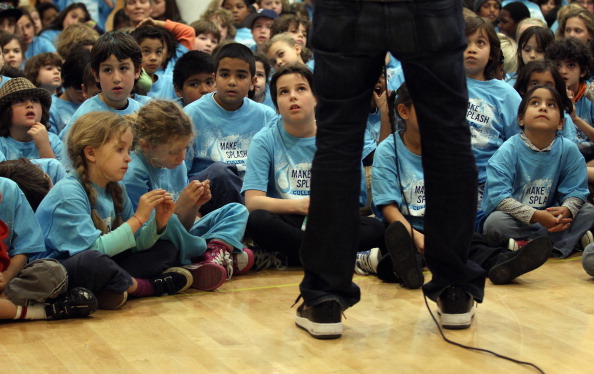How Racial Stereotypes Changes With Age

Streeter Lecka / Getty Images
People are more charitable toward young black children than older black children, according to a new study published in the journal of Social Psychological and Personality Science. Researchers examined data from a large, online charity that solicits donations for school projects. Proposals that included photos of older black children — sixth through 12th graders — didn’t get as many donations than proposals with photos of younger black children. For white children, an opposite pattern exists.
“What we show is as you grow toward adulthood, you come to represent your group in a much stronger fashion. People perceive you more in line with your group stereotypes.” says Deborah Small, one of the study’s authors. “Young children, we don’t penalize them by their [group's] stereotypes. Their ‘groupness’ is not fully formed yet.”
For African Americans, that means teenagers are more likely to be associated with stereotypes of being lazy, thus less deserving of sympathy and charity than young black children or white children, the study’s authors note.
Researchers didn’t have data on the identity of the specific donors, but Small said the online charity’s overall donors tend to be highly-educated, wealthier and living on the east or west coast, which is more liberal.
Researchers also found that people were more charitable toward young black children than young white children. Small said that could be a result of some measure of white guilt, or more likely, that people assume that black kids are more needy than white kids, despite coming from similar economic situations.
The findings on how race and age affect who people think is deserving of sympathy may have implications beyond charities and fundraising, the study notes. For instance, Small speculates they could shed light on juvenile criminal sentencing or other domains “where you’re evaluating the blame-worthiness of a child,” such as adoption, immigration or how the public thinks tax dollars should be spent.
-
guesr





